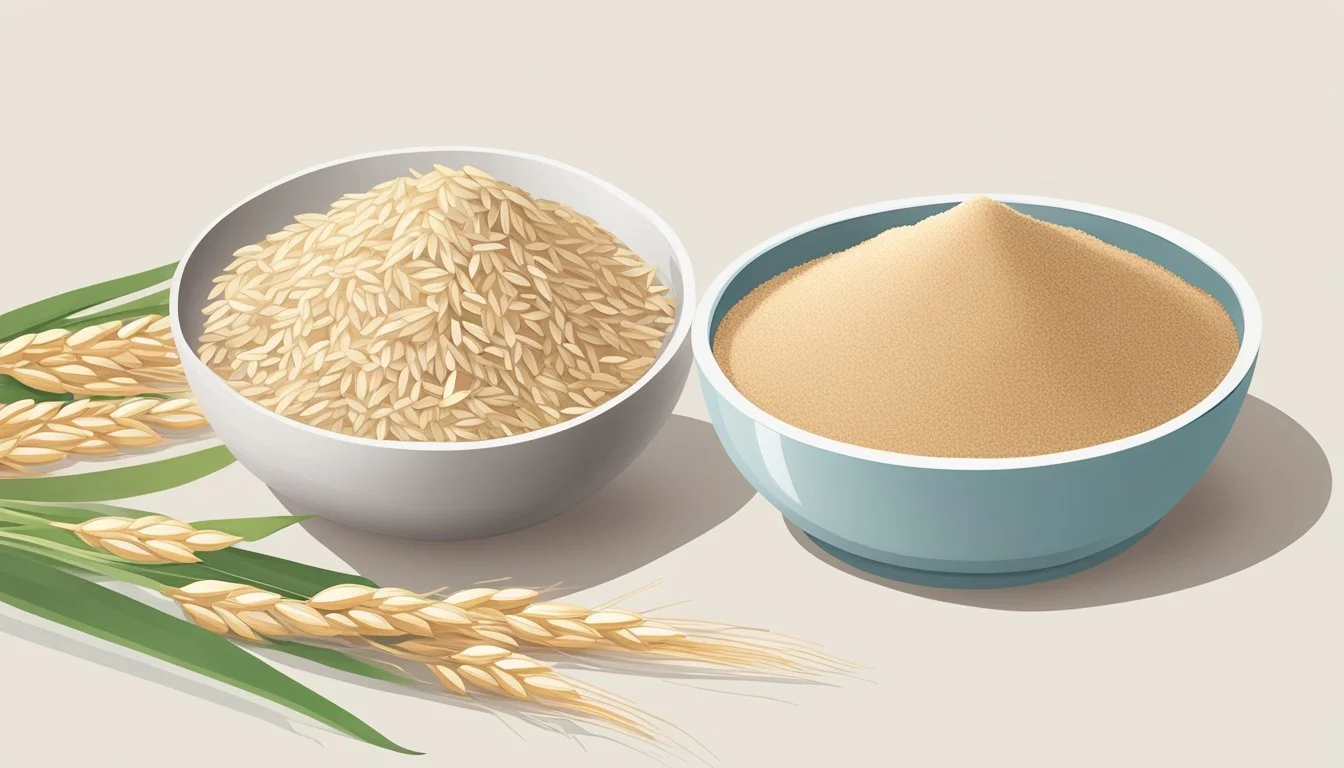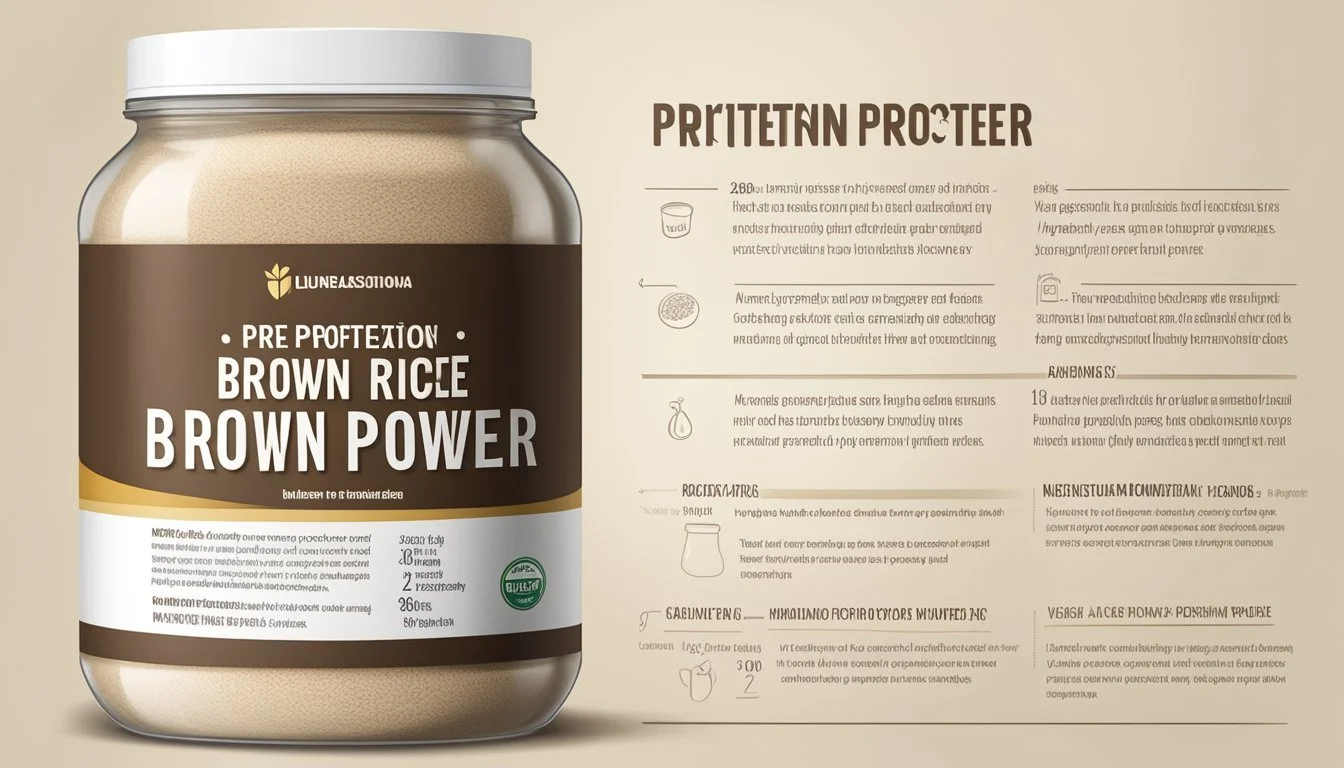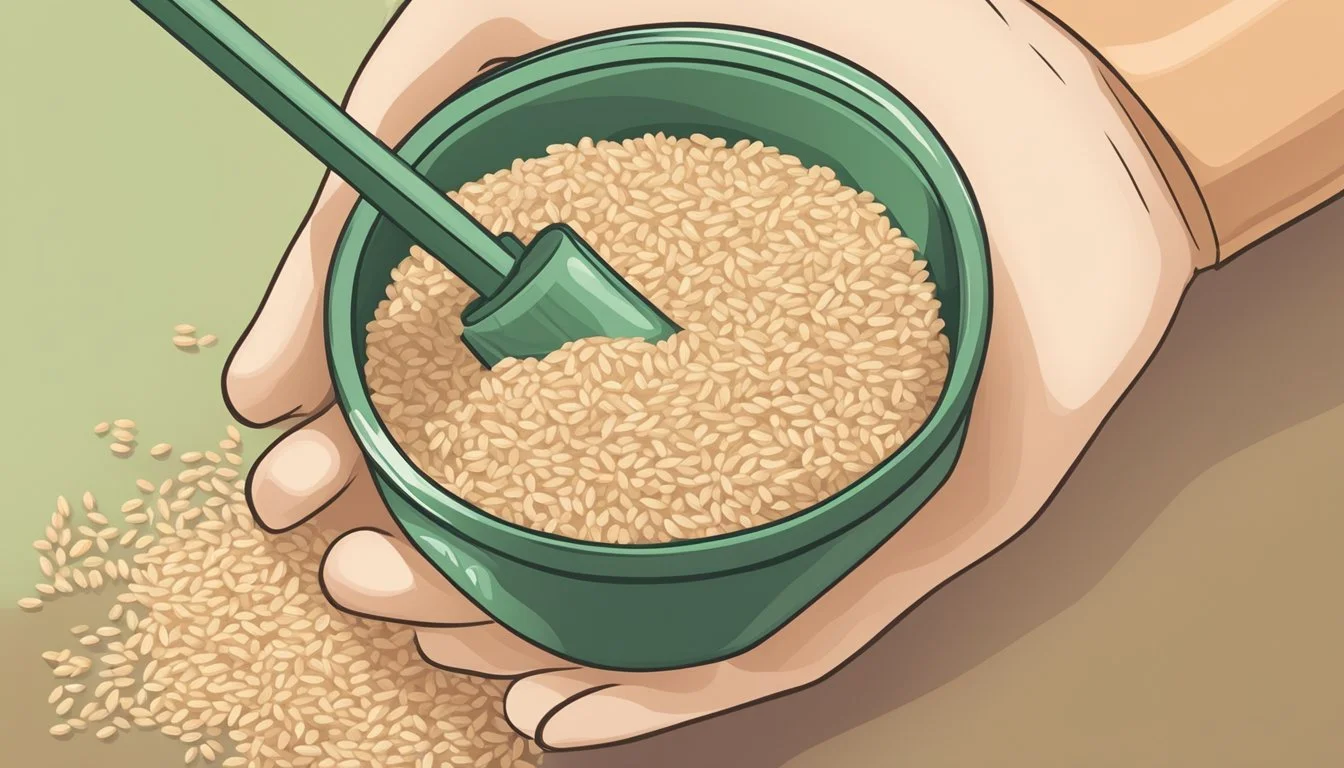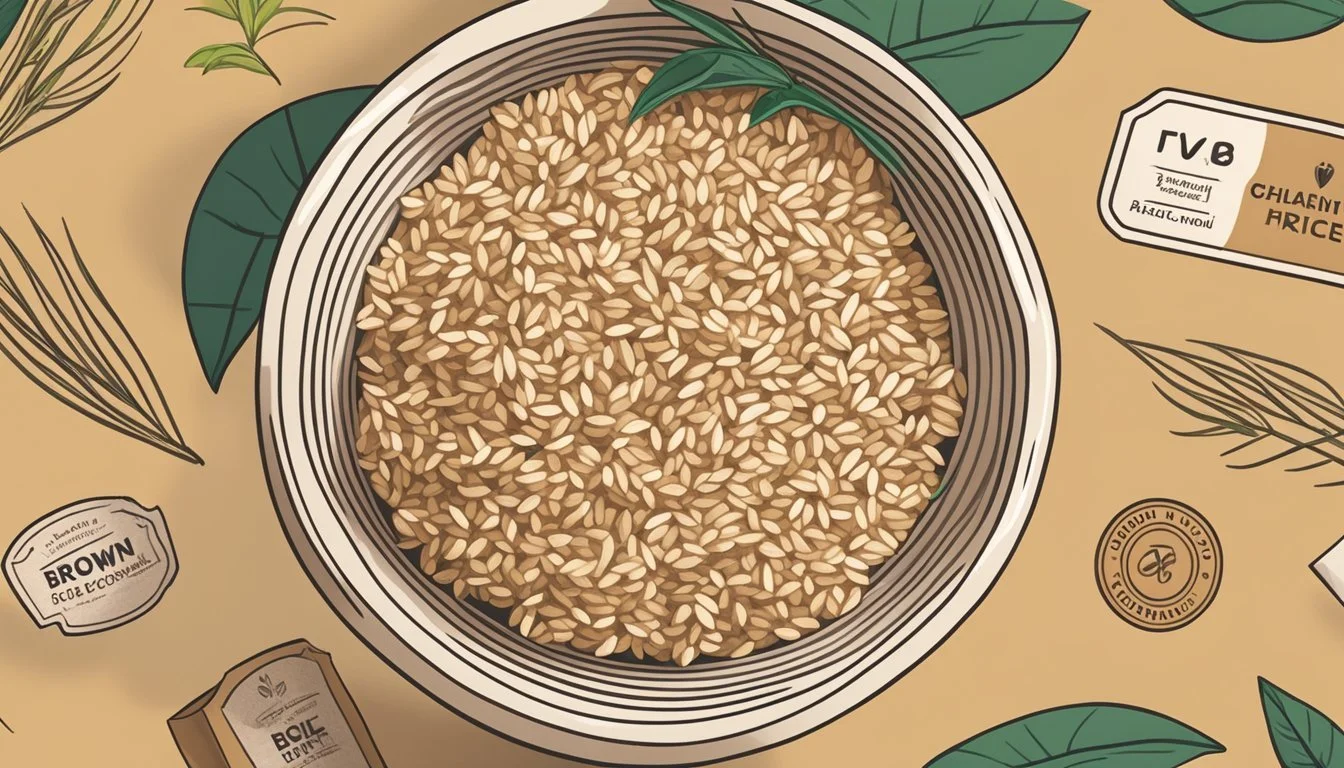Is Brown Rice Protein Powder Vegan?
Unveiling the Truth About Plant-Based Protein
Brown rice protein powder is a type of protein supplement derived from brown rice, and it is inherently vegan. Unlike protein powders that are based on animal products such as whey, casein, or egg, brown rice protein is plant-based, making it a suitable option for vegans or those with allergies to dairy proteins. In the growing market of dietary supplements, the diversity of protein sources is crucial for catering to various dietary needs and ethical choices, with veganism being a significant consideration for many.
The process of creating brown rice protein powder involves treating brown rice with enzymes that cause the carbohydrates to separate from the proteins. This results in a protein-rich powder that has a lower risk of allergens and is easy to incorporate into a vegan diet. As a plant-based protein, brown rice protein powder offers a convenient way for those following a vegan diet to increase their protein intake without relying on animal products.
While brown rice protein powder is a good source of protein, it is important to note that it may not provide all the essential amino acids in the same quantities as animal-based proteins. However, this does not detract from its value in a well-rounded vegan diet, where various protein sources can be combined to ensure an adequate intake of all essential amino acids for optimal health. Vegan athletes and fitness enthusiasts often utilize brown rice protein powder as a key component in their nutrition regimens to support muscle repair and growth.
What is Brown Rice Protein Powder?
Brown rice protein powder is a supplement derived from brown rice that provides a considerable protein content. It's an attractive option for individuals pursuing plant-based diets looking for alternative protein sources.
Definition and Production
Brown Rice Protein Powder is made by extracting protein from brown rice. The production involves various processes such as fermentation, filtration, or enzymatic treatment to separate the protein from the whole grain rice. This results in a protein-rich powder form that retains much of the nutritional value of brown rice but with a higher concentration of protein.
Nutritional Profile
The nutritional profile of brown rice protein powder typically includes:
A significant level of protein, often around 22 grams per quarter-cup serving.
A source of iron, which is vital for oxygen transport in the blood.
Traces of calcium.
Nutritionally, the powder may not present a complete amino acid profile in comparison to animal proteins. However, it is still considered a valuable protein supplement for those who do not consume animal products.
Vegan Protein Sources
Vegan protein sources, such as brown rice protein powder, are essential for those following a plant-based diet. They offer an alternative to animal-derived proteins, providing the necessary amino acids for muscle growth and repair.
Comparison to Dairy and Soy Proteins
Dairy proteins, primarily whey and casein, are well-known in the fitness industry for their high biological value and complete amino acid profile. Whey protein, derived from milk, is praised for its quick absorption rate, making it a favorite for post-workout recovery. However, for those on a vegan diet, dairy is not an option due to its animal origin.
Soy protein, another common non-vegan alternative, is a complete protein sourced from soybeans and has been a staple in plant-based diets for its comparability to dairy in protein quality. However, its use can be controversial due to the presence of phytoestrogens, and individuals with soy allergies or intolerances need to avoid it.
Brown Rice vs. Other Vegan Protein Powders
When it comes to plant-based protein powders, there is an array of sources available, including pea protein, hemp protein, and soy protein.
Pea protein is rich in branched-chain amino acids, especially arginine, and is hypoallergenic, making it a popular choice for those with dietary restrictions.
Hemp protein comes from the seeds of the hemp plant and not only provides protein but also delivers a dose of omega fatty acids. It's often noted for its earthy taste and may have lower protein content per serving compared to others.
Brown rice protein powder stands out among vegan protein powders for its hypoallergenic qualities and ease of digestion. It's typically made by isolating protein from brown rice and is free from dairy, making it suitable for vegans. However, it's important to note that brown rice protein is not a complete protein — it lacks some amino acids found in dairy and soy proteins, such as lysine. Despite this, it can still support muscle maintenance and growth when combined with other vegan protein sources to ensure a complete amino acid profile.
For example, as indicated in the search results, some brands of brown rice protein contain 23 grams of protein per 30-gram scoop, highlighting its potency. Certain products combine pea and brown rice protein to provide a more balanced amino acid profile, which could be an attractive option for those seeking to diversify their protein intake.
Health and Nutritional Benefits
Brown rice protein powder is a plant-based supplement known for being rich in essential amino acids and easy to digest. It provides a favorable macronutrient content, supporting muscle mass while aligning with vegan dietary patterns.
Amino Acid Profile
Brown rice protein powder contains a significant amount of amino acids, including branched-chain amino acids (BCAAs) which are crucial for muscle synthesis and repair. It's especially high in the amino acids cysteine and methionine but has lower levels of lysine.
Digestibility and Absorption
This protein source is typically considered easy to digest, with a digestion rate that is favorable for regular consumption. It contains no cholesterol and is often recommended for individuals with food sensitivities looking for an alternative to dairy-based proteins.
Macronutrient Content
The macronutrient profile of brown rice protein powder is robust:
Calories: Varies by brand, but generally low
Carbohydrates: Contains a moderate amount, including fiber
Fat: Generally low in fat, with some products offering essential fatty acids
Protein: Offers a substantial amount of protein per serving, often more than 20g
Iron: Provides a source of iron, an important mineral for oxygen transport in the blood
Overall, brown rice protein is an inclusive option suitable for many due to its plant-based origin and nutritional benefits.
Usage in Dietary Contexts
Brown rice protein powder offers a beneficial supplement option for individuals adhering to a vegan diet or those with specific dietary restrictions, such as gluten intolerance or food allergies. It can be seamlessly integrated into various meal plans and is especially valuable for muscle growth and weight management.
Integration in a Vegan Diet
Brown rice protein powder is a vegan source of protein, making it an excellent dietary addition for vegans seeking to increase their protein intake. It contains essential amino acids important for overall health, and its plant-based origin aligns with vegan dietary requirements. Vegans can incorporate brown rice protein powder into their diet through various means, for instance:
Smoothies: Adding a scoop of brown rice protein powder enhances the protein content.
Meals and snacks: It can be blended into soups, oatmeal, or homemade protein bars.
Aside from being vegan-friendly, brown rice protein powder is typically gluten-free and hypoallergenic, making it suitable for individuals with gluten sensitivities or common food allergies.
Weight Loss and Muscle Growth
For those focused on weight loss or muscle growth, incorporating brown rice protein powder into their diet can be advantageous. It offers the following benefits:
Low in Calories: Can assist in creating a caloric deficit essential for weight loss.
Muscle Repair: Aids in muscle recovery post-workout due to its amino acid profile, beneficial for vegans who may have limited protein-rich food options.
Furthermore, whether the goal is to lose weight or gain muscle, brown rice protein can play a key role in a vegetarian or vegan diet. It provides a substantial amount of protein per serving, which can support these fitness goals without compromising dietary principles.
Safety and Dietary Considerations
When choosing a brown rice protein powder, consumers need to be informed about allergen content and the presence of additives or artificial ingredients to make safe dietary choices.
Allergen Information
Brown rice protein is generally considered hypoallergenic, making it a safe option for individuals with common food allergies. It does not contain gluten, dairy, or animal-derived components, which are often implicated in allergic reactions. Individuals with food allergies should always check labels to ensure there are no cross-contaminants or traces of other allergens in the product.
Additives and Artificial Ingredients
The inclusion of additives and artificial ingredients in brown rice protein powders varies by brand. It's important to check the product label for:
Sweeteners: Some powders may include added sugars or artificial sweeteners to enhance taste. Look for labels that indicate "no added sugars" or the use of natural sweeteners like stevia.
Artificial Flavors: These are sometimes added to improve the palatability of the protein powder but may not be desired by all consumers.
Fillers: Ingredients such as cellulose or starch can be added as fillers to increase the volume of the powder.
Sodium: Levels of sodium should be noted, as some protein powders contain significant amounts which could impact those monitoring their sodium intake.
Calcium: Some brands may fortify their powders with additional minerals like calcium. While beneficial, this should be considered within the context of one's total dietary calcium intake to avoid excess.
To maintain a pure supplementation, consumers are advised to opt for products with minimal ingredients and to avoid those with unfamiliar or unnecessary additives.
Product Selection and Usage
Selecting the right brown rice protein powder hinges on individual preferences for taste and texture, as well as an understanding of product labels and nutrition facts. This section will guide users through navigating these aspects to make an informed choice.
Taste and Texture Preferences
When choosing a brown rice protein powder, one must consider their taste preferences, since some powders can have a distinct flavor that may not be palatable to all. Brown rice protein can vary from brand to brand, with some offering flavored options like chocolate or vanilla to enhance taste. Consumers should also be aware of texture, as it can affect the overall experience. Some powders may be finer and blend more smoothly, while others might be grittier.
Understanding Labels and Nutrition Facts
Reading labels is crucial for users to ensure they are getting a vegan product and to understand the nutritional value of their protein powder. Key information typically found on the labels includes:
Serving Size: This is usually measured in scoops and can vary between brands.
Protein Content: Look for the amount of protein per serving, which should be clearly listed in grams.
Nutrition Facts: Beyond protein, check the content of fat, carbohydrates, sugars, and amino acid profile.
Allergen Information: Brown rice protein is hypoallergenic and thus suitable for those with allergies to soy, gluten, or dairy.
Users should note that while most brown rice protein powders are pure and vegan, ensuring this requires checking that no animal-derived ingredients are included in the composition. Additionally, one must pay attention to the amino acid profile, as brown rice protein might be lower in certain essential amino acids such as lysine.
Regulation and Standards
In order to ensure that brown rice protein powder is deemed vegan and adheres to health and quality standards, certain regulatory measures and testing procedures are in place. These measures are designed to certify the product's compliance with vegan principles and its purity from contaminants.
Certification and Quality Assurance
Certification entities such as the USDA oversee the labeling of products like brown rice protein powder as organic. Certified organic protein powders are assured to be free of synthetic pesticides and fertilizers. Manufacturers may also obtain non-GMO verification to assure consumers that their products are free from genetically modified organisms. Vegan certification indicates the product is free from animal derivatives and dairy, which is essential for vegan consumers. Naked Rice, for example, ensures that its organic sprouted brown rice protein is not only vegan but also organic.
For quality assurance, the FDA regulates dietary supplements to some extent, although it does not approve them as strictly as pharmaceuticals. There are guidelines on good manufacturing practices (cGMP) set by the FDA that manufacturers must follow. These guidelines require that products, such as brown rice protein isolate, are produced in a quality manner, do not contain contaminants or impurities, and are accurately labeled. Moreover, third-party testing is a common practice where an independent organization reviews the product to verify the quality and purity claims made by the producer.
Contamination and Purity Testing
Protein powders, including those derived from brown rice, are susceptible to contamination by heavy metals like lead, arsenic, and mercury. It is imperative for manufacturers to conduct contamination and purity testing to ensure their supplements are safe for consumption. Heavy metals and pesticides testing is crucial, as the accumulation of these substances can pose health risks over time.
Purity testing often includes screening for various allergens to confirm that the product is indeed dairy-free and suitable for individuals with allergies. This reassures consumers who rely on label claims when making dietary choices. ACC may refer to accepted contamination levels set for various substances, and adherence to these levels is checked through regular testing.
Some companies choose to label their products as third-party tested, indicating that an independent body has reviewed the product for compliance with regulatory standards. This extra layer of assurance is appreciated by consumers who are vigilant about the integrity of their dietary supplements.
Environmental and Ethical Considerations
The production and consumption of brown rice protein powder have increasingly been viewed through the lens of environmental responsibility and ethical consumerism. These considerations revolve around the sourcing of ingredients and the subsequent impact on the environment.
Sourced Ingredients
The ingredients in brown rice protein powder are typically derived from organic farming practices that avoid the use of synthetic pesticides and fertilizers. The selection of organic ingredients supports sustainable farming methods that can reduce soil degradation and promote biodiversity.
Impact on the Environment
Plant-based protein powders, such as those made from brown rice, typically have a smaller carbon footprint compared to animal-derived proteins. The manufacturing process for brown rice protein powder tends to be more eco-friendly, with a lower environmental impact, as plants require fewer resources like water and land compared to animal farming. This contributes to a more sustainable food system that is aligned with efforts to mitigate climate change.
Recipes and Serving Suggestions
Brown rice protein powder is a vegan-friendly option that can effortlessly fit into a variety of recipes. It offers a simple way to add a protein boost to everyday food and drinks. Specifically, it works well in smoothies and shakes and can be a valuable addition to both sweet and savory baking recipes.
Making Protein Rich Smoothies and Shakes
Smoothies and shakes are convenient vehicles for brown rice protein powder. When crafting these beverages, one can typically mix one scoop of the powder with a selection of fruits and liquid bases like almond or coconut milk. A standard serving size usually contains about 15 to 25 grams of protein.
Basic Chocolate Protein Smoothie:
1 banana
1 cup almond milk
1 scoop chocolate brown rice protein powder
Ice as needed
Instructions: Blend until smooth.
Vanilla Berry Shake:
1 cup mixed berries (frozen)
1 cup coconut milk
1 scoop vanilla brown rice protein powder
Instructions: Combine ingredients and blend until smooth.
Cooking and Baking with Protein Powder
Protein powders are not limited to drinks; they can also be incorporated into cooking and baking. Using brown rice protein powder in recipes like pancakes or protein bars is an easy way to enhance the nutrient content of meals.
1 cup oat flour
1 scoop plain or vanilla brown rice protein powder
1 teaspoon baking powder
1/2 teaspoon baking soda
Pinch of salt
1 flax egg (1 tablespoon flaxseed meal + 2.5 tablespoons water)
Instructions: Whisk dry ingredients, add flax egg, and cook on a non-stick pan.
It is important to note that the addition of protein powder can alter the texture of baked goods, so one might need to adjust the amount of liquid in the recipe accordingly. Choosing flavors like chocolate or vanilla can complement the overall taste of the final product.











